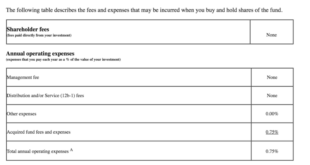Key Mortgage Broker Tips: A Comprehensive Guide to Success. Mortgage brokers play a crucial role in helping individuals navigate the complex world of home financing. Whether you’re a seasoned professional or just starting, implementing effective strategies can significantly enhance your success. This guide outlines key tips and addresses frequently asked questions to help mortgage brokers thrive.
What is a Mortgage Broker?
A mortgage broker acts as an intermediary between borrowers and lenders, helping clients find the most suitable mortgage products. They assess the client’s financial situation, negotiate loan terms, and ensure a smooth application process. Their expertise simplifies complex procedures, saving clients time and effort.
10 Key Mortgage Broker Tips for Success
- Build Strong Relationships with Lenders
Partnering with diverse lenders ensures you can offer clients a variety of loan products. Cultivating these relationships also makes negotiations smoother and increases your value to clients. - Understand Your Target Market
Specialize in specific client demographics, such as first-time buyers, veterans, or luxury homeowners. Tailoring your services builds trust and improves customer satisfaction. - Stay Updated on Industry Trends
The mortgage industry is constantly evolving. Regularly attend seminars, subscribe to industry publications, and join professional networks to stay informed about new regulations and market trends. - Leverage Technology for Efficiency
Use mortgage CRM software to streamline client management, document processing, and follow-ups. Efficiency tools free up time for building relationships and growing your business. - Focus on Marketing Your Services
Develop an SEO-friendly website, utilize social media, and invest in local advertising. Highlight your expertise with educational blogs and client testimonials to attract potential clients. - Offer Personalized Solutions
Take time to understand each client’s unique needs and financial goals. Offering tailored solutions builds trust and ensures repeat business. - Educate Your Clients
Simplify complex mortgage terms and processes for clients. An informed client is more likely to refer you to others and less likely to encounter issues during the loan process. - Maintain Transparent Communication
Honesty and clarity about fees, timelines, and requirements foster trust. Always keep clients informed at every step of the process. - Prioritize Networking
Join local real estate groups, attend industry events, and collaborate with realtors. Networking expands your referral base and enhances credibility. - Stay Compliant with Regulations
Ensure all your activities align with industry standards and legal requirements. Proper compliance protects you from penalties and boosts client confidence.
10 Frequently Asked Questions (FAQs)
- What qualifications are needed to become a mortgage broker?
Mortgage brokers typically need a relevant license and industry-specific training, depending on the location. - How does a mortgage broker differ from a loan officer?
Brokers work with multiple lenders, offering a broader range of options, while loan officers represent a single financial institution. - Are mortgage brokers worth the cost?
Yes, brokers save time and often secure better rates, which can offset their fees. - What is the average commission for a mortgage broker?
It varies but typically ranges from 1% to 2% of the loan amount. - How do brokers find the best mortgage rates?
Brokers compare offers from multiple lenders based on the client’s financial profile. - Can mortgage brokers help with bad credit?
Yes, brokers can guide clients toward lenders that specialize in loans for individuals with poor credit. - How long does it take to secure a mortgage through a broker?
The process typically takes 30-45 days, depending on documentation and lender response times. - Do mortgage brokers handle refinancing?
Yes, brokers assist with refinancing options to help clients reduce interest rates or change loan terms. - Are brokers liable for bad loans?
Brokers are responsible for ensuring the accuracy of applications but are not liable for a lender’s loan decisions. - Can a broker work with more than one client at a time?
Yes, experienced brokers handle multiple clients effectively using organizational tools and strong time management.
Conclusion
Mortgage brokers have the opportunity to profoundly impact their clients’ lives by guiding them through the complexities of home financing. By building strong relationships, leveraging technology, and staying informed about industry trends, brokers can enhance their reputation and grow their business.
Implementing the 10 key tips outlined in this guide will ensure brokers remain competitive and client-focused in a dynamic market. By educating clients and maintaining transparency, brokers not only build trust but also foster long-term success in their careers.
 mortgage.kbk.news
mortgage.kbk.news
